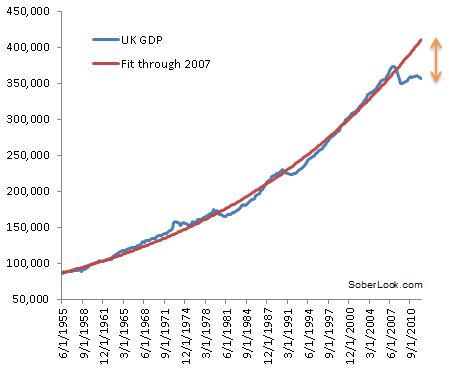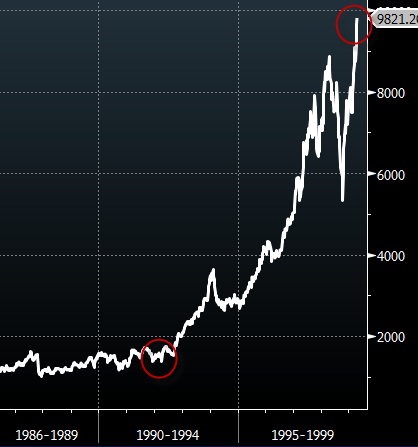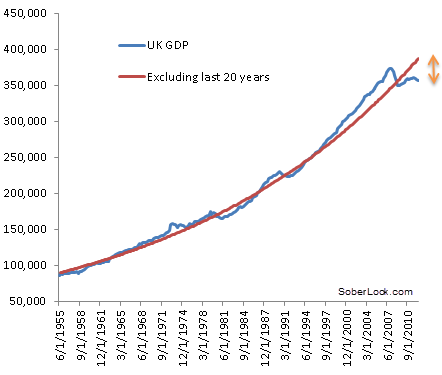Stock market today: S&P 500 climbs as ongoing AI-led rebound pushes tech higher
Before embarking on the current policy adventure, some of the FOMC members looked for guidance in the UK. The Bank of England (BOE) has been expanding its balance sheet for quite some time with little success so far (discussed here). And just as in the US, the UK's monetary and even government policy has been based at least in part on the concept of the output gap (see this article). The economy has the capacity to grow faster than it does, so according to some it just needs certain types of help.
There is no question the UK economy can grow "faster", particularly given that it has been in a double dip recession (see discussion). But how much faster? A number of economists look at this chart (below) and say that if we just unlocked all this "frozen" capacity in the economy, look how much the UK GDP could improve. The period of 2008 and after was an aberration; what came before was the true output growth - and we should be able to resume such growth.
But there is a bit more to this. Roughly 20 years ago credit became fashionable in the UK. Between 1992 and 1999 the market capitalization of the UK's banking sector increased more than five-fold (based on the appreciation of the FTSE 350 Banks Index).
In the 90s the UK's economic growth was increasingly driven by the financial services industry and the sectors of the economy that became dependent on credit. Those who spent any time over in London's Canary Wharf during the 90s will appreciate this trend.
What happens if we simply assume that this last 20 years of growth has been "helped" considerably by the credit bubble and should be excluded from the GDP fit? A very different picture emerges. The UK's GDP trend is nowhere close to the "bubble" years and the output gap is far lower than from the first fit (above). This is similar to the analysis performed by Barclays Capital for the US output gap (see discussion).
Yes, there is work to be done to get back to "normal" output growth in the UK. Part of the problem of course has been the Eurozone's recession, where the UK firms do a great deal of business. But as BOE is finding out, expanding its balance sheet indefinitely is simply not going to get them to the bubble years' growth rate, no matter how hard they try.
